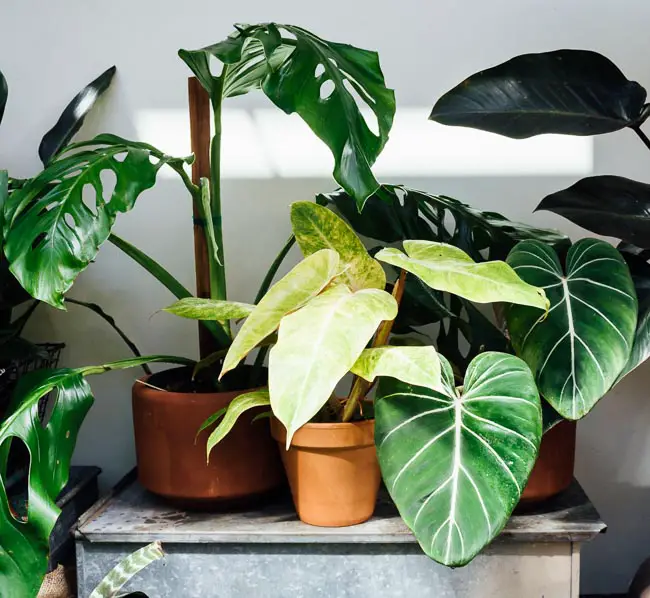Yes, Philodendron Gloriosum is toxic to cats and can cause various symptoms if ingested by them. Philodendron Gloriosum is a popular houseplant known for its distinctive heart-shaped leaves and beautiful variegation.
However, while it may add beauty to your home decor, it can pose a serious threat to your feline companions. This plant is toxic to cats and contains insoluble calcium oxalate crystals, which can cause irritation and inflammation in the mouth, throat, and gastrointestinal tract when ingested.
Symptoms of Philodendron Gloriosum toxicity in cats include drooling, difficulty swallowing, vomiting, and oral pain. In severe cases, it can even lead to respiratory distress and swelling of the throat, which may require immediate veterinary attention. Therefore, it is important to keep this plant out of reach of your curious cats to ensure their safety and well-being.
The Basics Of Philodendron Gloriosum And Cats
Philodendron Gloriosum may pose a potential threat to cats due to its toxic properties. Pet owners should exercise caution and keep these plants out of reach from their feline companions to ensure their safety and well-being.
Characteristics Of Philodendron Gloriosum
The Philodendron Gloriosum is a popular houseplant known for its large, heart-shaped leaves and distinctive velvety texture. While it can be an attractive addition to any indoor space, it is important to be aware of its potential toxicity to cats.
Philodendron Gloriosum contains calcium oxalate crystals, which can cause irritation and discomfort if ingested by cats. These crystals are present in the leaves, stems, and roots of the plant, making it necessary to ensure that cats cannot access or chew on any part of the plant.
Cats are curious creatures and may be inclined to explore plants in the household. It’s important to understand that even if your cat has never shown interest in plants before, they may still be tempted by the Philodendron Gloriosum. Ingesting this plant can lead to symptoms such as drooling, pawing at the mouth, vomiting, and difficulty swallowing.
To keep your cat safe, consider placing the Philodendron Gloriosum in an area that is inaccessible to your feline friend. If you notice any concerning symptoms or suspect that your cat has ingested any part of the plant, it is crucial to contact your veterinarian immediately for guidance.
Identifying The Potential Dangers
Philodendron Gloriosum is a popular houseplant known for its attractive foliage. However, it is essential for cat owners to be aware of the potential risks it poses to their feline friends. This plant contains toxic compounds that can be harmful to cats if ingested. Cats are curious creatures and may chew on or play with plants, increasing the likelihood of exposure.
Toxic Compounds Present In Philodendron Gloriosum
Philodendron Gloriosum contains oxalates, which are crystal-like substances that can cause irritation and swelling in a cat’s mouth, tongue, and throat. Ingesting these oxalates can lead to drooling, difficulty swallowing, and even vomiting. Additionally, the insoluble calcium oxalate crystals can cause choking hazards or blockages in a cat’s digestive system if large quantities are consumed.
How Cats Can Be Exposed To Philodendron Gloriosum
Cats can come into contact with Philodendron Gloriosum by rubbing against its leaves, licking or chewing on them, or even knocking over the plant. It’s important for cat owners to ensure their furry companions cannot access the plant, either by placing it out of reach or opting for pet-friendly alternatives. Keeping indoor plants safe from curious cats is an effective preventative measure.
Recognizing Symptoms Of Philodendron Gloriosum Toxicity In Cats
If a cat ingests Philodendron Gloriosum or comes into contact with its toxic compounds, various symptoms may occur. These can include oral irritation, excessive drooling, pawing at the mouth, vomiting, difficulty swallowing, and decreased appetite. If you notice any of these signs, it is crucial to seek veterinary care immediately to ensure prompt treatment and support for your cat’s health.
Managing Philodendron Gloriosum Around Cats
Philodendron Gloriosum is a stunningly beautiful plant that can brighten up any space, but it’s crucial to keep in mind that it can be toxic to cats. However, there are preventive measures you can take to ensure your cat’s safety.
To start with, it’s important to keep Philodendron Gloriosum out of your cat’s reach. Place it in a location where your feline friend won’t be able to access it. Consider using hanging planters or tall shelves to place the plant out of harm’s way.
If you’re worried about your cat being curious, it’s also a good idea to provide alternative plants that are safe for them to interact with. Cat-friendly options such as spider plants or Boston ferns can offer a similar aesthetic appeal without the associated risks.
In the unfortunate event that your cat ingests Philodendron Gloriosum, it’s crucial to act promptly. Contact your veterinarian immediately, as they can provide specific instructions tailored to your cat’s situation. It’s also advised to keep an eye out for symptoms such as vomiting, diarrhea, or excessive drooling.
| Toxic | Safe Alternatives |
| Philodendron Gloriosum | Spider plant |
| Boston fern |

Credit: www.houseofkojo.com
Conclusion
To sum up, while the Philodendron Gloriosum is undoubtedly a visually stunning houseplant, its presence can pose a serious threat to our feline companions. Due to its toxic properties, it’s crucial to prioritize the safety of our furry friends and opt for feline-friendly alternatives.
Remember, a loving and safe environment is the key to a healthy and happy life for both humans and pets alike.


